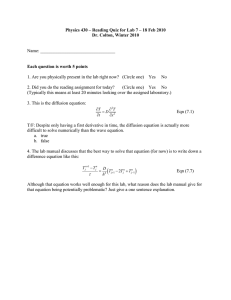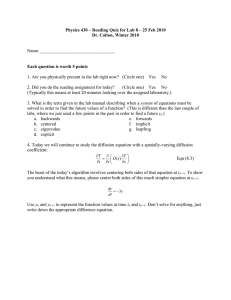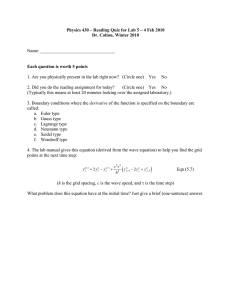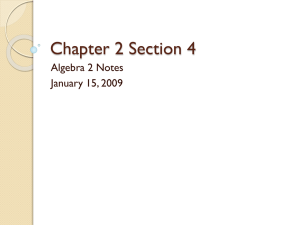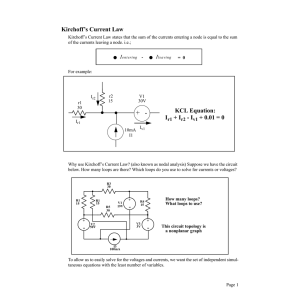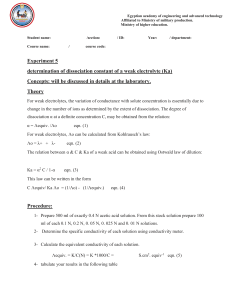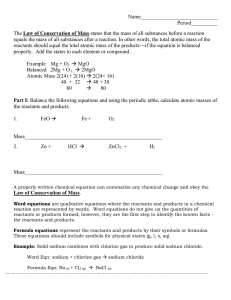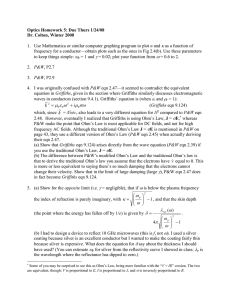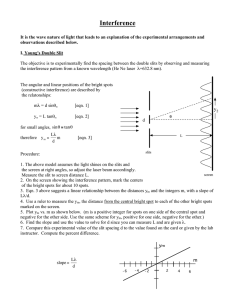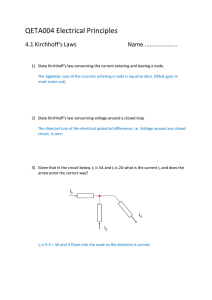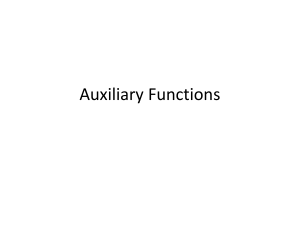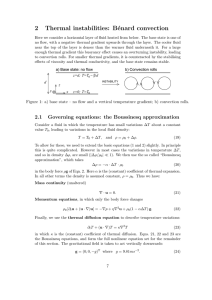Quiz 13
advertisement
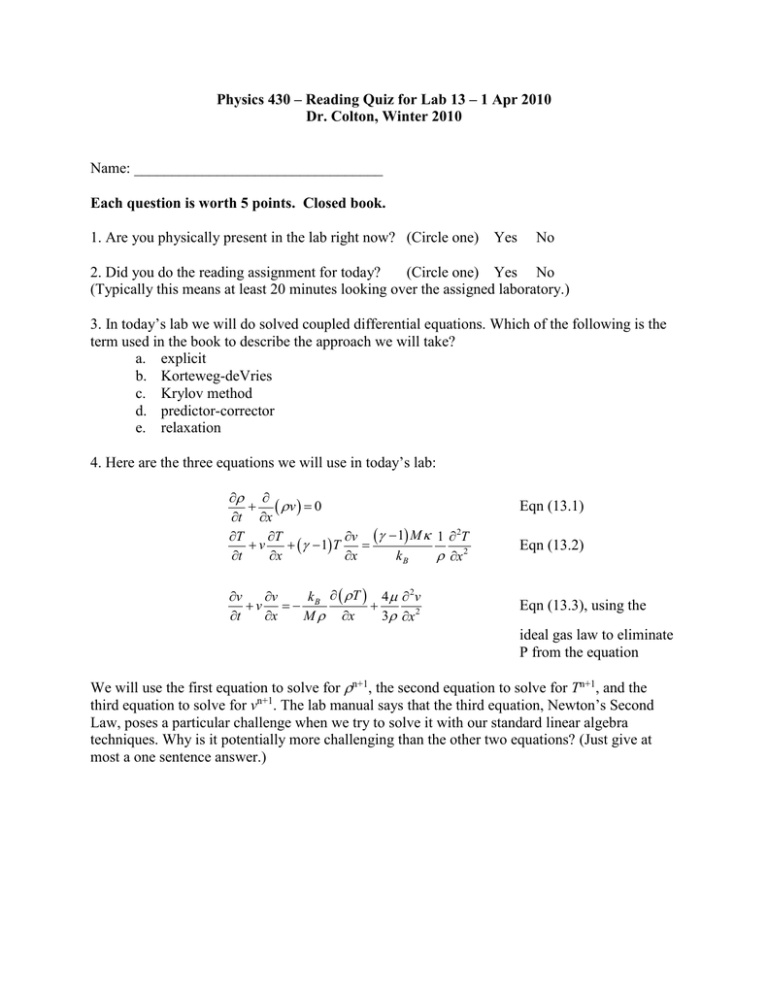
Physics 430 – Reading Quiz for Lab 13 – 1 Apr 2010 Dr. Colton, Winter 2010 Name: _________________________________ Each question is worth 5 points. Closed book. 1. Are you physically present in the lab right now? (Circle one) Yes No 2. Did you do the reading assignment for today? (Circle one) Yes No (Typically this means at least 20 minutes looking over the assigned laboratory.) 3. In today’s lab we will do solved coupled differential equations. Which of the following is the term used in the book to describe the approach we will take? a. explicit b. Korteweg-deVries c. Krylov method d. predictor-corrector e. relaxation 4. Here are the three equations we will use in today’s lab: v 0 t x T T v 1 M 1 2T v 1 T t x x kB x 2 v v k T 4 2 v v B t x M x 3 x 2 Eqn (13.1) Eqn (13.2) Eqn (13.3), using the ideal gas law to eliminate P from the equation We will use the first equation to solve for n+1, the second equation to solve for Tn+1, and the third equation to solve for vn+1. The lab manual says that the third equation, Newton’s Second Law, poses a particular challenge when we try to solve it with our standard linear algebra techniques. Why is it potentially more challenging than the other two equations? (Just give at most a one sentence answer.)
